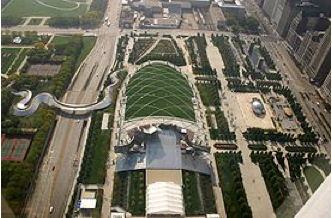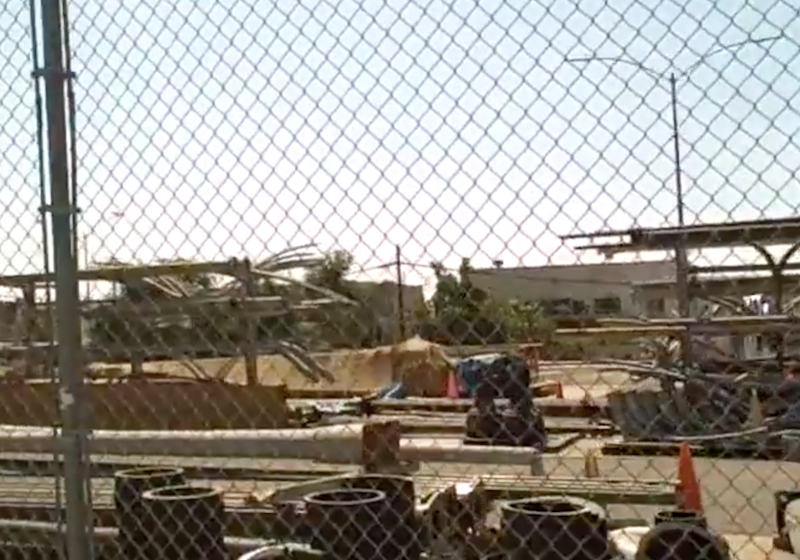CommentsBELL VIEW--Yesterday, a memory popped up on my Facebook feed from eight years ago. In 2009, the East Hollywood Neighborhood Council took part in a citywide event known as "Parking Day LA." The event began in 2005 in San Francisco as an effort to draw attention to the lack of public space in major cities. Admittedly, the event is a bit precious. A bunch of hipsters get together and make a temporary “park” out of a metered parking space.
But in East Hollywood, in 2009, the event had real significance. We chose as a location two parking meters directly across from the 100-year-old Cahuenga Branch Library adjacent to the East Hollywood Light Yard. The library, built with $34,000 of Andrew Carnegie’s money in 1916, sits directly across from the Bureau of Street Lighting’s industrial storage yard for light poles. The light yard has been in East Hollywood for more than 60 years.
After the Parking Day LA event in 2009, then-Councilmember Garcetti set up a tour of the facility for community members and activists and talked about how great it might be to move the light poles somewhere under the freeway and make the light yard into a park for the kids and families of East Hollywood.
Turns out that’s all it was: talk.
The East Hollywood Neighborhood Council kept talking too. That same year, the Neighborhood Council produced an event called ArtCycle designed to create a space for artists, cyclists and neighbors to get together and celebrate their neighborhood. We did four ArtCycles – twice closing down Santa Monica Boulevard for the day.
Hundreds of neighbors – many of them immigrant families reluctant to engage with the cyclists and hipsters and artists who had invaded their neighborhood – came out into the streets. For one day, East Hollywood blossomed into a true urban community, a real life celebration of the diversity we all claim to be so proud of.
Each of these events focused on the East Hollywood Light Yard and its promise of a future open space for one of the most park-poor neighborhoods in one of the most park-poor cities in America. Each event brought the community together for one brief moment. Each event raised the issue to the top of the pile for the City’s leaders for one brief moment. Each event created a conversation about the lack of space for people to be people in this town.
 And we got exactly what we asked for: conversation. In the time LA City Officials gabbed and posed about moving a few light poles to a new location and creating a modest open space for the 53,000 residents of East Hollywood, the City of Chicago created Millennium Park, (photo left) now one of the top ten tourist destinations in the country.
And we got exactly what we asked for: conversation. In the time LA City Officials gabbed and posed about moving a few light poles to a new location and creating a modest open space for the 53,000 residents of East Hollywood, the City of Chicago created Millennium Park, (photo left) now one of the top ten tourist destinations in the country.
It’s a shameful pathetic disgrace.
Now open space has become the enemy of housing. Now we need housing. We need density. And parks and open space can wait. And wait and wait.
At the time we were making all that noise about the East Hollywood Light Yard, the effort began to create a park over the 101 Freeway in Hollywood. The Hollywood Central Park is an idea I have been in love with since the beginning.
Eight years ago, the East Hollywood Neighborhood Council was honored as a “hero” at the annual gala “celebrating” the non-existent park. We got dressed up and had a fancy dinner with all the City bigwigs and congratulated ourselves on our vision for the future of the City. Every year, we get together and talk and talk and talk. Yet Millennium Park in Chicago was conceived of, designed, and built in seven years. It can be done, where there’s a will.
(David Bell is a writer, attorney, former president of the East Hollywood Neighborhood Council and writes for CityWatch.)
-cw















